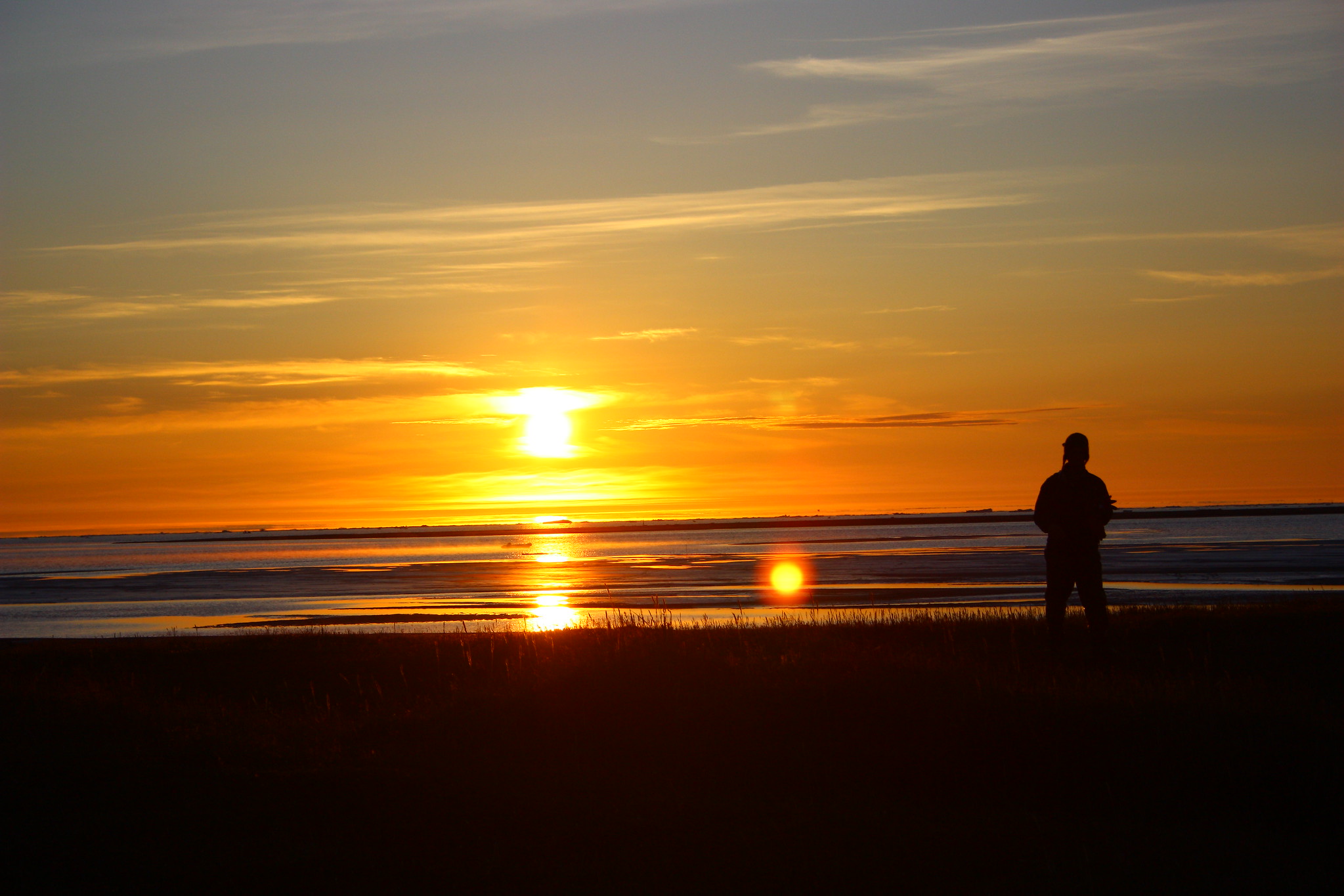What researchers can learn from the Arctic’s sleepless season
It's that time of year when Arctic daylight is endless — and sleep is scarce.

The 1997 Norwegian thriller “Insomnia,” remade five years later in the U.S., featured a central character who could never get a good night’s sleep during an Arctic summer.
The sleep-deprived detective was an exaggeration, but the characterization contains elements of truth.
Extreme seasonal changes in daylight play havoc with human circadian system, the internal body clock that governs the cycle of sleep and wakefulness.
Some people try to adjust by using blackout curtains, while others turn to mind-altering substances or melatonin supplements, the hormone that helps control sleep.
Exercise and a regular schedule help, though the daylight hours are just as likely to confuse the mind as the body clock.
The perpetual summer daylight remains a topic of curiosity not only for northern artists and residents, but also for scientists who have examined the ways extended hours of natural light exacerbate sleep problems in the Arctic.
“The Arctic summer represents a particularly challenging environment for obtaining sufficient sleep,” four researchers wrote in a 2014 sleep study for the Canadian Department of National Defence. “This has implications for the cognitive performance of staff during work hours.”
Researchers undertook a four-year project to learn how to help military members best manipulate the circadian system to minimize fatigue. They found that taking melatonin and limiting exposure to light could lead to more restful nights.
“Since light is a strong stimulus to the body’s circadian clock, you must also avoid light at certain times of day to prevent sending conflicting messages to the body’s clock,” researcher Michel Paul said in 2016.
There is a growing body of evidence that better sleep can be obtained by abstaining from excessive night light.
Paul and others tracked the sleep patterns of a small sample of military members in January and June, finding that during June, the average participant slept 50 minutes less a night.
“We suspect that the reduced duration of sleep obtained each night in June highlights the prevalence of sleep difficulties during the Arctic summer,” wrote Paul and his co-authors.
They recommended that special sunglasses that filter out blue and green light wavelengths be worn about two to three hours before bedtime.
These glasses can help create “circadian darkness” and trigger the production of more melatonin to promote sleep, the authors said.
Other studies have reached similar conclusions about limiting exposure to the bright lights of summer.
Workers at three Arctic camps in Alaska, who spent more than 45 hours a week in the daylight, slept for about 6 hours, 18 minutes a night, compared to 8 hours a night for those who had been outdoors for lesser periods, a new study says.
The sample size of 19 workers was hardly large enough to draw any solid conclusions, but the findings do raise questions that ought to be addressed in larger studies, three health care researchers from Norfolk, Virginia conclude.
Margaret Lubas and two co-authors wrote that sleep research usually focuses on the dark days of winter. Those studies have shown an increase in sleep disturbances.
“During the winter months, workers in the Arctic (Sweden), reporting decreased natural light exposure, reported an increased prevalence of insufficient sleep compared to workers in an equatorial setting (Brazil) with increase natural light exposure,” the researchers said.
The radical shift in spring to a light-all-night environment also translates into sleep problems, the researchers said.
Lubas said the survey respondents, most of whom did shift work or various kinds, reported that it took them an average of 29 minutes to fall asleep, which is 13 minutes longer than that of healthy adults, based on other studies.
During my years as a newspaper reporter in Fairbanks, I often talked to people who complained of neighbors who mowed lawns at midnight or allowed their kids to play in the streets at 11 p.m.
I heard tales from sleepless new arrivals who could never adjust to the light-all-night summer schedule.
I also heard from many people who said they always slept less in the summer because they had so much more to do.
They would tell you that sleep can wait, remembering the lesson of the winter just past and the one that is yet to come — daylight is too precious of a commodity to waste.
Dermot Cole can be reached at de*********@gm***.com.